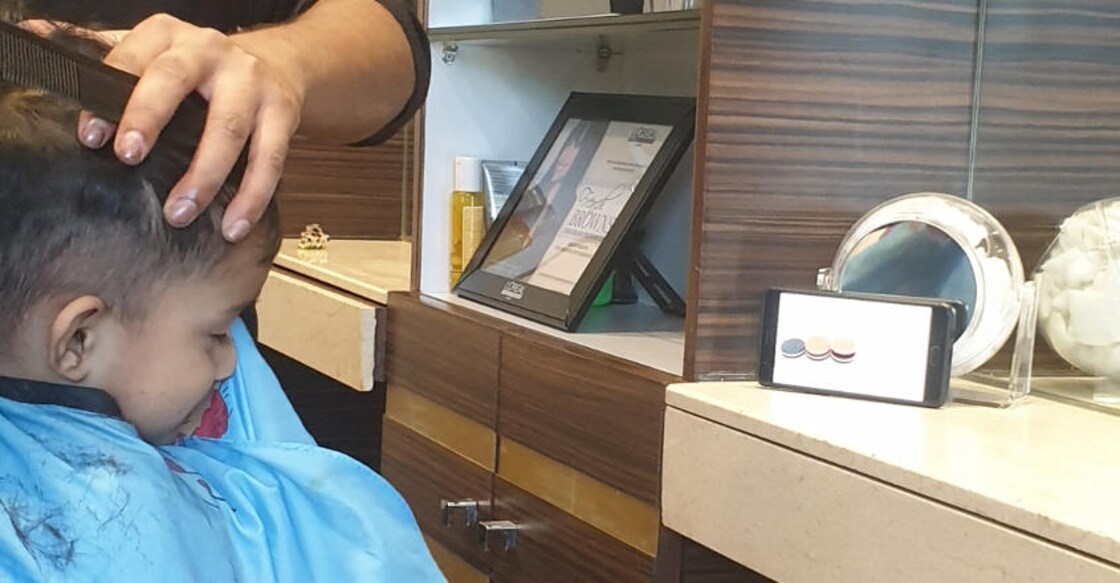Indian parents nurturing screen addiction in toddlers: Experts

Mail This Article
New Delhi: If you are one of those parents who hand over a smartphone or a tablet to your toddlers while feeding them or to keep them entertained, beware this habit can not only make them sedentary but also push them into severe digital addiction in their formative years.
According to the American Academy of Pediatrics (AAP), only 15-20 minutes of screen exposure is healthy and acceptable for babies under 18 months of age.
However, busy schedules and an over-protective approach towards the physical safety of toddlers have increasingly convinced parents, especially in the metros, to hook their children onto smart screens, say the experts.
Instead of playing with toys or being part of an outdoor activity, over-exposing them to screens so early in life could hinder their holistic development, damage their eyesight and cause childhood obesity which can lead to diabetes, high blood pressure and high cholesterol.
"Toys generate more visual and tactile information to the toddler's brain. Screen interactions are just too fast for a toddler of less than two years of age to comprehend any information and learn anything out of it," Soumiya Mudgal, Psychiatrist, Max Healthcare, Gurugram, told IANS.
The increased screen time can also push toddlers to laziness and permanently damage their cognitive abilities such as solving problems, paying attention to other people and falling asleep on time.
Health experts suggest that the "ideal" age for children to be exposed to moderate screen involvement is 11 years. But, a recent survey by UK-based online trade-in outlet musicMagpie found that 25 per cent of children aged six and under already have their own mobile phones and nearly half of them spend up to 21 hours per week on their devices - playing games on screen and watching videos.
Since screen exposure is inescapable for toddlers, parents are being advised by experts to engage their children in "open-ended" content on screens. This would help them to be creative in interacting with the app, which could contribute as cognitive development than mere reward or distraction.
However, screen exposure for a short period under supervision cannot be harmful.
"Under supervision, 15-20 minutes of letting toddlers interact with screens while eating, bathing or getting a haircut could be allowed as a reward for the child because there is no evidence of it causing addiction in that little duration," Mudgal said.
Media diets should be rich in educational content and should be based on the science of learning approaches in creating content that triggers the intuitive senses in kids at that tender age.
"Technology should not hamper the child's normal social interaction and environmental learning," Mudgal noted.
Once children become habitual to interacting with smart displays, trying to cut down their screen engagement time later could result in problematic withdrawal symptoms like irritable behaviour, disobedience, repetitive demanding and tantrums in sleeping, eating or even staying awake.
For digital detox, experts say parents should create and maintain device-free zones at home, especially at dining tables and in bedrooms for kids as well as for themselves.
"Children pick up from what they see. Parents have to set an example of practising healthy screen time habits themselves and they must cautiously beware of the impact that their own screen habits could have on their toddlers," Mudgal said.

